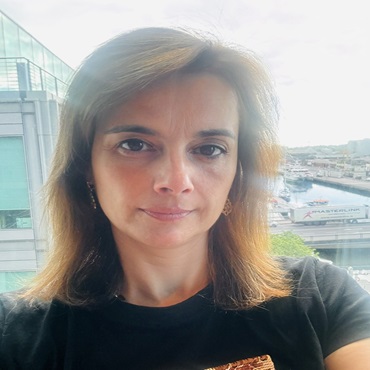Speaker

Dr. Ana Marta M. Goncalves
Biography :
Prof. Dr. Ana Marta Gonçalves completed her Ph.D. in Biology at the University of Coimbra (UC) in 2011. Currently, she is an auxiliary professor at the Department of Life Sciences of UC, Portugal. Since 2016, she has been a member of the Scientific Council of the Institute for Interdisciplinary Research, UC, headed the winning list in the last elections. She holds various administrative and management positions in international networks (e.g. Coordinator of UC Food Coordination – an Interdisciplinary Initiative of UC, Chair of SETAC Education Committee, eLTER Coordinator of the Working Group Sites and Platform Forum (SPF) Training Group, Coordinator of LTER Estuaries (Portugal), Board member in MARE, Portuguese representative in Training Working Group of LifeWatch), in societies (e.g., SETAC, AIL, SIBECOL, SPD) and associations (e.g., PROAQUA). Dr. Ana Marta Gonçalves also presents a vast research network, with national and international collaborations with Academia and aquaculture seaweed companies. Her research work has garnered extensive international media coverage across news outlets, journals, radio, and TV, owing to its significant impact and novelty which appeals to the international community and to society. Dr. Ana Marta Gonçalves s (co-)author of more than 130 publications with 6441 citations and a h-index of 41 (Scopus). She has participated as a member and/or coordinator in more than 37 national and international projects. During her research career, AMG obtained several grants and a MARS award for young scientists funded by the Royal Netherlands Institute for Sea Research (NIOZ). In 2021 AMG was awarded by UC with the Honorable Mention Award for the Impact of International Publications, according to Web of Science. She has expertise in biosafety, biochemical pathways, and the impacts of natural and chemical stressors on aquatic species. Her research focusses on the valorization of marine resources and their applications in the industrial sector, such as the food and pharmaceutical industries. Her studies also highlight the application of biomarker tools for monitoring and managing aquatic systems.

